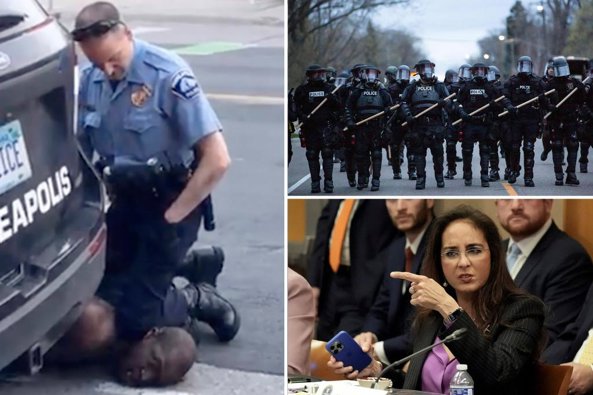
DOJ Drops Biden-Era Police Lawsuits
The Justice Department moves to end major civil rights lawsuits against police departments, citing flawed evidence and high costs.
DOJ Dismisses High-Profile Police Reform Cases
The Department of Justice announced Wednesday it is dismissing civil rights lawsuits filed during the Biden administration against the police departments of Louisville, Kentucky, and Minneapolis, Minnesota. Assistant Attorney General Harmeet Dhillon stated the department would drop the cases “with prejudice,” meaning they cannot be refiled, and would also close several additional investigations into other police agencies.
According to DOJ officials, these cases were based on overly broad investigations, faulty legal theories, and flawed methodologies. The lawsuits, originally launched in response to high-profile incidents of police violence, alleged systemic unconstitutional practices within both departments. DOJ leadership now argues that the cases mistakenly equated statistical disparities with intentional discrimination and relied on incomplete data.
“In short, these sweeping consent decrees would have imposed years of micromanagement of local police departments by federal courts and expensive independent monitors,” said Dhillon. “They lacked a legally or factually adequate basis.”
Financial and Legal Concerns Drive Reversals
The DOJ emphasized the high costs associated with consent decrees, which can last over a decade and cost upwards of $10 million annually for large departments. These long-term federal interventions, officials said, have rarely yielded meaningful change while significantly burdening local agencies and taxpayers. “That’s over $100 million in taxpayer expense, often without significant impact to the underlying issues that the DOJ identified,” Dhillon explained.
In addition to Louisville and Minneapolis, the DOJ announced it would retract findings and end investigations into police departments in Phoenix; Trenton, New Jersey; Memphis, Tennessee; Mount Vernon, New York; Oklahoma City; and the Louisiana State Police. All these cases were initiated under the Biden administration’s Civil Rights Division.
The Louisville decree had been awaiting judicial approval and followed the fatal shooting of Breonna Taylor in 2020. The Minneapolis case stemmed from the 2020 death of George Floyd, which ignited nationwide protests and intensified calls for police reform. The DOJ’s decision comes just days before the five-year anniversary of Floyd’s death.
“Overbroad police consent decrees divest local control of policing from communities where it belongs,” Dhillon argued, “turning that power over to unelected and unaccountable bureaucrats, often with an anti-police agenda.” She added that the Civil Rights Division is reviewing all remaining consent decrees for potential closure.
Wednesday’s announcement marks a significant shift in federal civil rights enforcement strategy under the Trump administration, which is now actively rolling back what it characterizes as legally unsupported and financially burdensome oversight mechanisms imposed during the Biden presidency.






